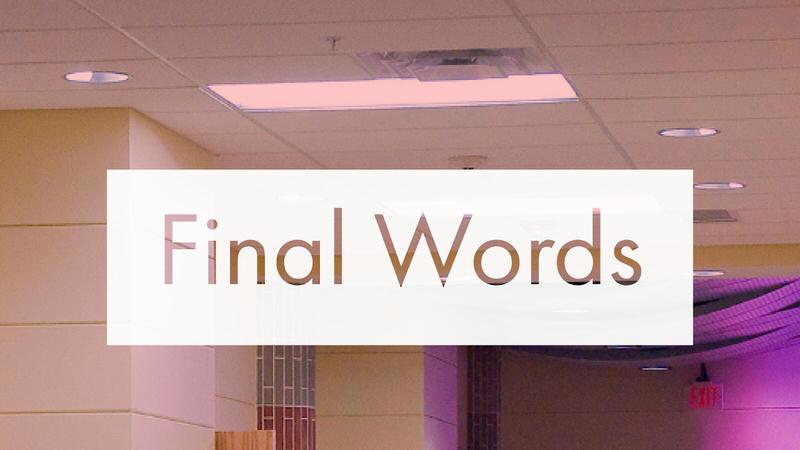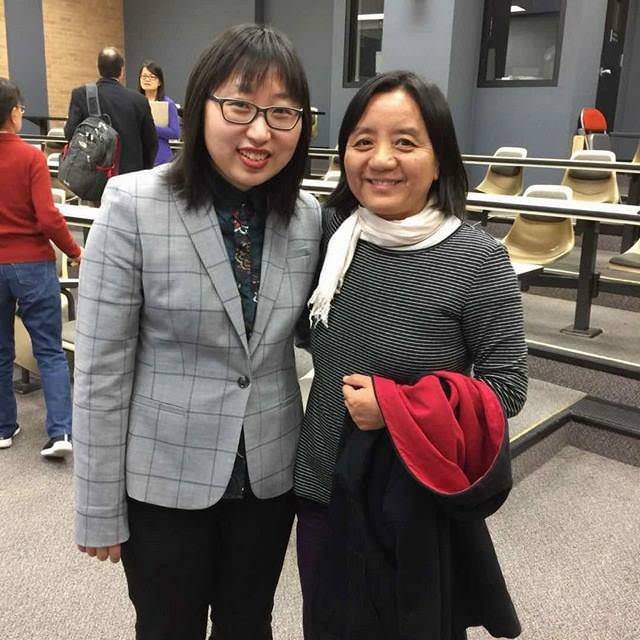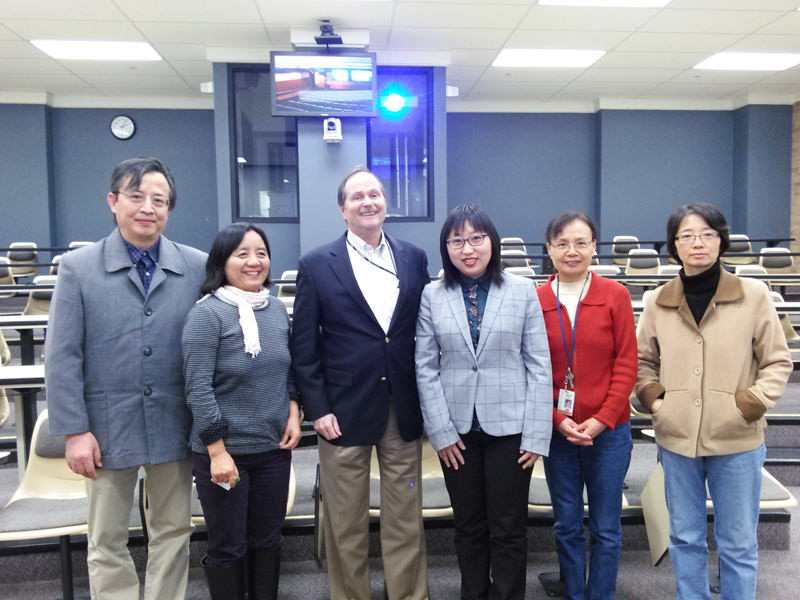Final Words: Chen Chen

Congratulations to one of our students, Chen Chen (Cancer Biology track) who successfully defended her PhD dissertation recently! Chen will be staying on for a couple of months as a postdoctoral fellow in her mentor’s lab to complete and submit a first author manuscript. She is already a co- (2nd) author on a paper published in Clinical Cancer Research in November 2016. Congratulations also to her mentor, Jim Freeman (Medicine / Hematology-Oncology)!
 Your name, program, mentor name.
Your name, program, mentor name.
Chen Chen, Cancer Biology, Dr. Jim Freeman
Tell me about your research. Why is your topic important?
Pancreatic ductal adenocarcinomas have the worst prognosis of all solid tumors with a 5 year survival rate of less than 7 percent. Patients are most often diagnosed at an advanced stage. Most treatment regimens are either ineffective or patients rapidly develop chemoresistance.
Cancer stem cells also called tumor-initiating cells express CD44, possess a mesenchymal phenotype, show resistance to chemotherapy and give rise to persistent tumor formation. CD44 a non-kinase transmembrane receptor expressed in several cell types and is thought to play a role in cancer development and progression.
My dissertation research successfully identified a PDAC tumor cell phenotype, CD44 High/Mesenchymal that shows rapid tumor progression, metastasis and development of drug resistance in vivo. Mechanistically, we identified p-EphA2 and p-ERK as downstream targets of CD44 that contribute to this invasion phenotype. We found that treatment of single cell isogenic clones of CD44 Low pancreatic ductal adenocarcinomas cells with gemcitabine induces epithelial to mesenchymal transition and a high level of expression of CD44 standard isoform with a decrease in expression of CD44 variant isoforms and concurrent loss of epithelial splicing regulatory protein 1 expression. This suggests that an adverse effect of chemotherapy may drive epithelial to mesenchymal transition accompanied with induction of a CD44 standard isoform phenotype enhancing invasiveness and rendering tumor cells more resistant to chemotherapy. Agents that prevent the plasticity of cells from undergoing a phenotypic switch from CD44 Low to CD44 High cells may provide better therapeutic outcomes for patients who are diagnosed with advanced stage of pancreatic cancer.
 What was your best memory during graduate school or what did you learn?
What was your best memory during graduate school or what did you learn?
Learning from the tremendous talented teachers, co-workers, and friends especially with my current mentor Dr. James Freeman is my treasure. He helped me without asking anything in return, encouraged me during hard times in my personal life, enlightened me to stay in a scientific career path as my long-term profession.
His everlasting patience and hardworking spirit to our lab team, sincere care to all his students including me, the essence of high moral and altruism characteristics special to a teacher will influence me for the rest of my life. I will try my best to hone my scientific knowledge with the hope of helping more people and as a teacher to help as many students as possible to pave a successful road for them as my mentor did for me. I feel obligated to return the favor to our society and to pass on those good personalities and characteristics to my students. I appreciate that I have this opportunity to observe such a great role model of a teacher during my early  year of profession life.
year of profession life.
As an international student, I felt welcomed and treated greatly by our graduate school. Graduate school granted me a year leave of absence when I encounter personal difficulties. More importantly, graduate school also helped to cover my tuition fees and salary when more time needed to finish my degree. Special thanks to Dr. , Dr. Weiss, Dr. Blake and Dr. Pina.
What’s next?
My short term plan is continuing to do the research as a post-doc. Long term goal is to hunt a position allowing me to teach and conduct the cancer research.
